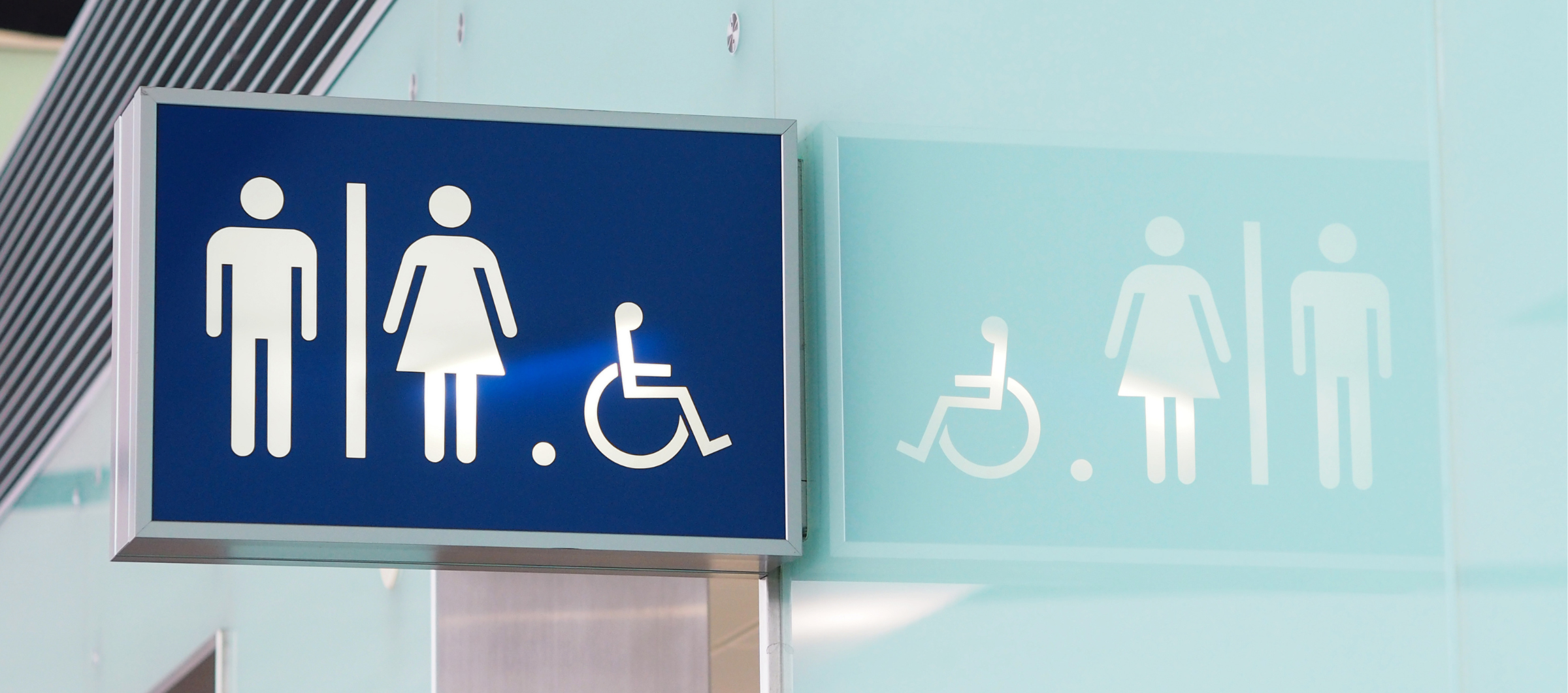How much of our life should the government govern?
This is an age-old question that people on both sides of the political spectrum grapple with daily. According to some Mississippi legislators, the government's reach should extend to control even your visits to the bathroom.
If enacted, the Securing Areas for Females Effectively and Responsibly Act, also known as the “SAFER Act,” will prohibit individuals from using restrooms that do not align with their biological sex at birth, thereby significantly affecting transgender people. SB 2753 mandates that public buildings must provide either single-sex restrooms and change areas or unisex spaces designed explicitly for individual use. The bill also defines the sexes as male and female, noting that intersex individuals are not defined as a third sex. Lastly, it allows individuals to bring legal charges for "encountering" someone in the bathroom that they assume does not belong there.
This bill would also significantly affect the thousands of Mississippi college and university students living in residential buildings and social fraternity and sorority buildings.
Proponents of the bill state that the bill’s main purpose is to protect the safety and privacy of males and females.[1]However, the bill begs two questions: Has the government become too intrusive? Should the government be encroaching on bathrooms and student housing?
Recent data from Gallup News suggests that 54% of Americans think that the government is doing too much and 43% of Americans think that the government is doing too little.[2] Most often, individuals who identify as Republican make up a large percentage of respondants saying that the government has too much of a reach, but conversely support intrusive bathroom bills. In the case of SB 2753, it seems that the government is intruding on something that they do not have to intrude on. All Mississippi college and university student housing provides single-sex restrooms for students living in that building.
The process for same and opposite sex visitors to these buildings are virtually the same as well. Visitors must check in at the front desk of the dorm with the resident that lives there, providing their ID to the desk attendant. This ensures that all persons are accounted for in the building. If the visitor has to use the restroom, there are either female, male, or unisex restrooms located in the lobby of the dorm. All dorms have curfews for students or visitors who do not live in those dorms, most between 10:00 p.m. and 2:00 a.m. Here is an example of University of Mississippi Housing Policy; the specific policy can be found on pages 40 and 41.
If dorms do happen to be co-ed, students follow the same check-in process and have the same requirement for visitors to use the restroom in the lobby. Only residents of the hall may enter onto that hallway. For example, I attended Mississippi State University and lived in Hull Hall, a co-ed dorm. I had to utilize my student ID card to scan into my building and into the female side of the dorm to access my dorm room. Any visitors that I had would be checked in and would have to utilize the bathrooms in the lobby.
If SB 2753 does pass, then public buildings would have to choose to provide only male and female bathrooms and/or to also provide the addition of a single stall unisex restroom if their building does not already have one, excluding intersex people.
While this bill is meant to “secure areas for females effectively and responsibly”, it is really a scapegoat that bars trans individuals from using bathrooms that align with their gender identity. It shows just how far the Mississippi legislature will go to reach into the lives of citizens, including into your private spaces and bathrooms.
Policy Analysis and Consequences
Bills like SB 2753 show a blatant disregard for the constitutional rights and civil liberties of every American and, in this case, every Mississippian.
This bill would require that professional, educational, and public spaces owned by the state be policed by community members. This creates paranoia, fuels hostility, and encourages private citizens to intrude upon the privacy of others. We must also consider the health implications of a bill like this. Many people suffer daily with mental distress or struggle to cope with their want to change or transition within a community to that is radically hateful towards them. Bills like SB 2753 further marginalize and isolate trans people in our communities. Furthermore, this bill would add additional strain on our legal system to investigate and attempt to compensate complaintants for an “encounter” in the bathroom. The reality is, an "encounter" can mean any number of things. This vague language sets a dangerous threshold.
In a discussion in the Mississippi legislature, lawmakers asked the chair what would happen if an individual needed to use the restroom but the bathroom assigned to them was out of order, or if a child or teenager had an emergency where they could not wait. The chair stated that the person “better hold it.” This is an insensitive and unrealistic perspective. There are many reasons why a person may enter a gendered restroom that does not align with their assigned sex at birth, including urgent medical emergencies, parents checking bathrooms before allowing their child to enter, college students attending parties at Greek houses, or simply entering by mistake.
Additionally, SB 2753 places employers at risk of violating OSHA standards. Federally, employers are not allowed discriminate in hiring on the basis of protected classes, including sex and gender identity. Employers are also not allowed to restrict bathroom access per the Department of Labor - OSHA. This law also affects federal funding that facilities may receive.
So, here are the facts that lawmakers are blatantly ignoring:
- There are existing laws to protect people in public spaces; harassment, assault, or misconduct.
- Bathroom bans cannot be enforced without a serious violation.
- Bathroom bans compromise public safety.
- Bathroom bans violate federal laws.
- Bathroom bans create hostility and pose a risk to jobs and the economy.
These realities and facts are further outlined in “The Facts: Bathroom Safety, Nondiscrimination Laws, and Bathroom Ban Laws” [3].
Conclusion
So, to be clear no one is saying that we should ignore the safety that is expected in private spaces. No one is saying that we should completely disrupt a system that has worked for many years. What we are saying is let’s not spread hate, misinformation, and fear amongst community members and campus life. We are also saying let’s not turn our communities into battle grounds for political fame. There have been many hateful efforts over the years to control public spaces. There is no concrete evidence that laws like this are necessary or effective—any perceived "safety" provided is a placebo that reinforces real issues like superiority, ignorance, and hate.
What is necessary is that we find a way to face the facts of the world today. We could encourage more single occupancy bathrooms or changing spaces because people get to decide the private affairs of their lives. They have a right to live the way that they choose. Rather than stripping individual privacy, increasing hostility, and threatening trans people, lawmakers should be encouraging measures that strengthen safety for all.
[1] Pittari, J. (2024, April 2). As safer act awaits action in Mississippi House, the women’s bill of rights sits in the Senate. Magnolia Tribune. https://magnoliatribune.com/2024/04/01/as-safer-act-awaits-action-in-mississippi-house-the-womens-bill-of-rights-sits-in-the-senate/
[2] Saad, L. (2024, February 7). Public firm in view government doing too much, too powerful. Gallup.com. https://news.gallup.com/poll/512900/public-firm-view-government-doing-powerful.aspx
[3] (Equality Federation Institute, Freedom for All Americans, National Center for Transgender Equality, Movement Advancement Project, 2016)


